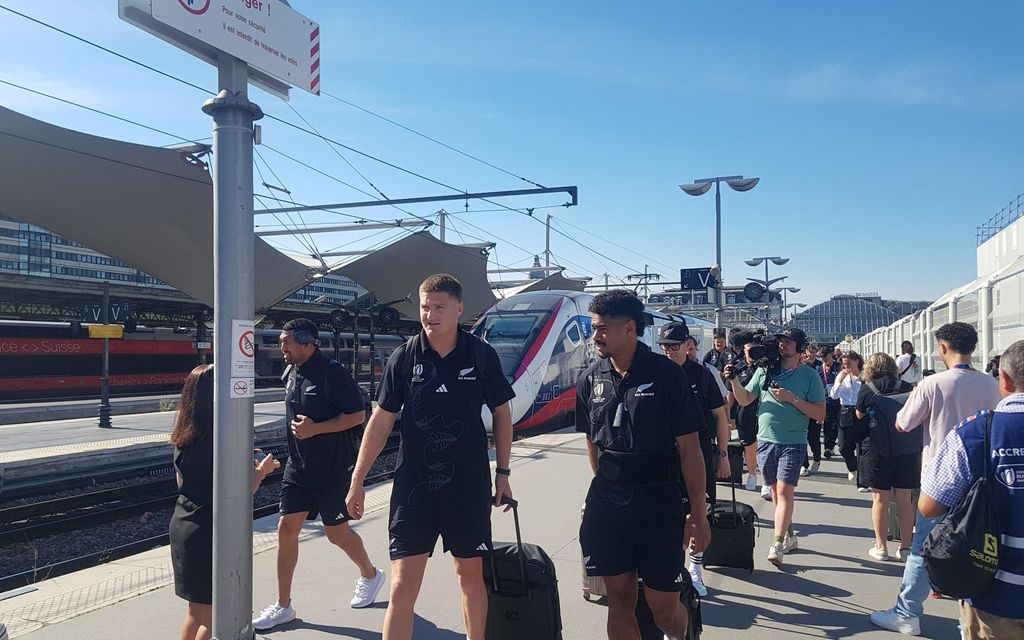PARIS - New Zealand hope they are on the right track for Rugby World Cup 2023 glory after letting the train take the strain for the opening game with France.
The All Blacks made the journey from Lyon to Paris in less than two hours on the TGV as part of the host nation’s commitment to cut the tournament’s carbon emissions.

Organisers expect 70 train journeys will be taken by all the teams – Uruguay will travel by train from Avignon to Lille before facing France on Thursday, 14 September.
With 88 per cent of fans also travelling by train, those arriving at stations on match days will be greeted by a message from France captain and SNCF ambassador Antoine Dupont.
In two stations, including Gare de Lyon, a crystal box will also broadcast a hologram of Dupont while games will be shown on giant screens around stations.
There will be 35 extra trains on match days between Saint-Etienne and Lyon. Taking teams around by train will save 50 per cent of carbon emissions.
"We want rugby to set an example and for low-carbon mobility to be one of the intangible legacies of this competition," said Michel Pousseau, RWC 2023 Tournament Director for World Rugby.
World Rugby and organising committee France 2023 are signatories to the United Nations ‘Sports for Climate Action’ working group.
World Rugby is committed to achieving a 50 per cent reduction in emissions by 2030.
The commitment was built into the development of the match schedule to optimise timing for teams and fans.
Base camps were chosen to limit the carbon footprint. England, with two games in Lille, are based in Le Touquet.
Eighty per cent of the carbon footprint at a Rugby World Cup comes from transport, particularly air travel with teams and fans arriving from all over the world.



